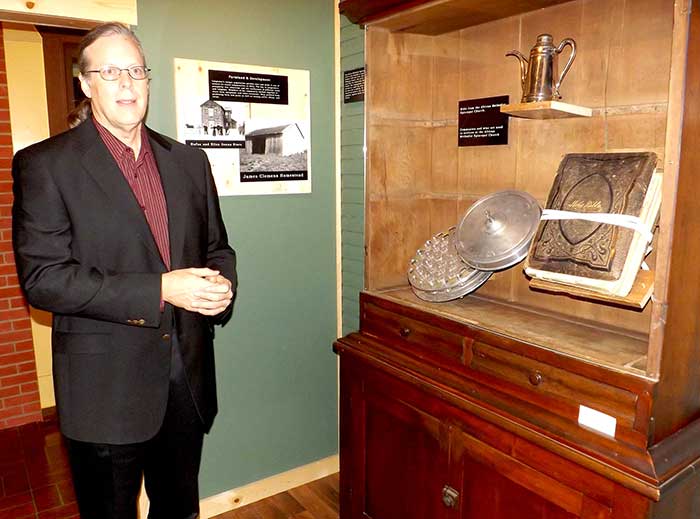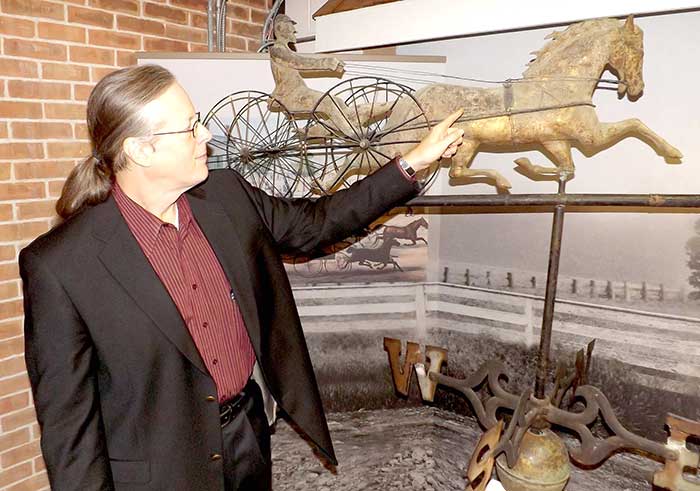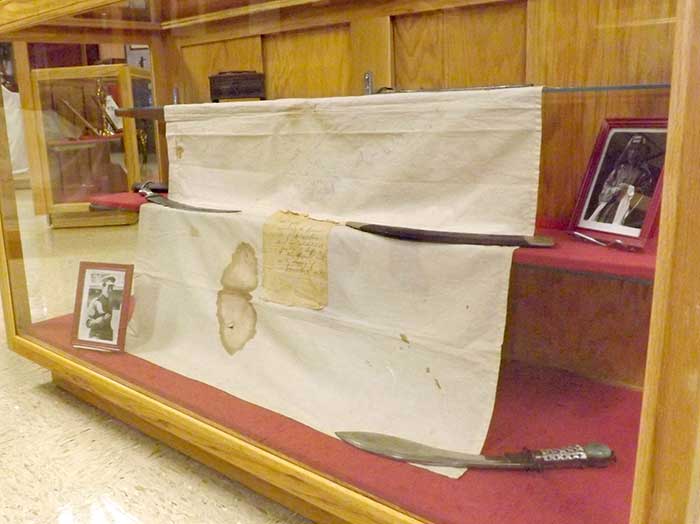|

|
Garst interns
help preserve history for new generations
By Bob Robinson
GREENVILLE – How do you preserve the future of a museum by making it
relevant to today’s generation? Especially when you have a limited
budget and ongoing projects…
One possible solution is interns.
Universities provide classroom and, where appropriate, laboratory
instruction. In order to provide hands-on experience they typically go
outside the educational environment. Garst Museum Director Clay
Johnson, Ph.D. has tapped into that opportunity with Wright State
University.
“Wright State has one of the few Public History Programs offering a
Master of Arts degree for students interested in the museum or archives
professions,” he said. Part of the degree requirement is a 300-hour
internship.
In the Spring of 2011 the museum took its first three WSU interns.
Noel Rihm was assigned to research the Longtown settlement, then assist
in the design, construction and promotion of the exhibit. The completed
project is part of the Village Wing.
Later, Elizabeth Koch and Leona Sargent joined the team for their
internships. Sargent worked on Collections. Koch was assigned the task
of upgrading the Lowell Thomas room with “budget conscious” funding.
Who was Lowell Thomas? Koch was among many of her generation who didn’t
know anything about him. She said later she’d had a wonderful
experience researching Thomas.
“Lowell was such an interesting man,” she said. “Always wanting to see
new sights and learn new things.” Delving into the collection taught
her a lot about the rise of broadcasting and the age of technology as
well.
“I hope to renew the public interest in this fascinating man and to
continue his legacy to future generations,” she added.
Johnson said the re-interpretation of the Lowell Thomas exhibit
resulted in a remarkable transformation in telling his story.
“Her assignment was to make him relevant to her generation… to those
who didn’t grow up with him.”
Johnson pointed out a flag in the Lowell Thomas room. It flew over the
actual surrender of the Turks to the British in 1917 at the end of
World War I.
“I believe it was loaned to other museums in the very distant past,” he
said, “I’m not going to let it go again.”
When Rihm was working on the Longtown exhibit there were few artifacts
in the collection, so she helped Koch work with the thousands of
artifacts needing to be organized for the Lowell Thomas exhibit. Since
the Longtown exhibit was completed, however, new artifacts have started
coming in.
Sargent helped with collections, cataloging artifacts. The museum has
over 300,000 pieces that must be identified, labeled, photographed and
now cataloged digitally. Johnson noted this would not be possible
without the additional help of volunteers.
Another WSU intern, David Manges, is a retired major from the military.
He was exploring the basement of the old Garst house and came upon a
World War One unit photograph, Company M, 166th Infantry Regiment after
returning from France in 1918. He didn’t know how – or if – it tied to
Darke County.
“In a true ‘Twilight Zone’ moment, later that afternoon, Nancy Stump
was showing me a neat little English to French translation phrase
book,” he said. “The book appeared to be of WWI vintage, so I thumbed
through it… inside the back cover was an inscription: “David E. Rumel,
INF, SGT, Co M, 166 INF, 42nd Rainbows, New Weston, Allen Township,
Darke County, Ohio.”
Manges said additional research showed Rumel was born in Greenville and
later moved to New Haven. Manges tied the photo to Darke County.
The latest intern was Jason Swiatkowski, who completed the “Darke
County the Way it Was” exhibit.
“Jason’s job was to find what he felt was the driving force that made
the county what it is today,” Johnson said at the recent unveiling of
the exhibit.
The Garst director acknowledged he was especially pleased with the
weather vane in the Darke County room. It was donated by the
Christopher Collection from the 1960’s.
“It’s folk artist style, which is highly prized by collectors. It was
actually on a barn… you can see the dents where someone took pot shots
at it.”
Johnson said he’s looking forward to working with additional interns in
the spring.
Published courtesy
of the Early Bird
|

|

|

|
|
|
|

